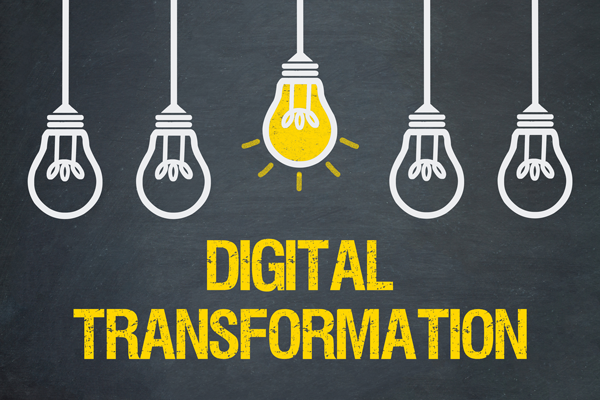
Comprehensive Guide to Digital Skills Assessment Tools
In today's digital world, assessing and improving digital skills is really important for people and companies. This guide explores digital skills assessment tools, helping you understand why they matter, how they work, and how to use them to grow in our technology-filled environment.
Key Takeaways:
- Digital skills assessment tools check how good you are at different digital tasks
- These assessments help find what skills you need to work on
- They usually use online platforms, questions, and give personal feedback
- Popular systems like DigComp give standard ways to do assessments
- Using these tools needs careful planning and checking skills regularly
- New trends include AI-powered and virtual reality assessments
- Challenges include keeping up with tech changes and making sure assessments are fair
1. What Are Digital Skills Assessment Tools?
Digital skills assessment tools are special platforms that check how good someone is at various digital tasks. These tools usually look at many different areas to give a full picture of a person's digital abilities. They often check things like:
- Finding and using digital information
- Communicating and working with others online
- Making digital content like documents or videos
- Staying safe online
- Solving problems using digital tools
- Basic computer knowledge
- Being a good digital citizen
- Thinking like a computer to solve complex problems
2. Why Are Digital Skills Assessments Important?
Digital skills assessments are really important in today's tech-filled world. They help in many ways beyond just checking what you know. These assessments are key for personal growth and helping companies plan in the digital age. They help:
- Find out what digital skills people or companies need to improve
- Make personal learning plans
- Help choose the right people for jobs and teams
- See if company digital plans are working
- Show off your digital skills when looking for jobs
- Help you move up in your career
- Improve digital skills for all ages
- Plan for future company skill needs
Learn more about how digital skills assessment can help in different areas like schools, hospitals, banks, and factories.
3. Common Features of Digital Skills Assessment Tools
Most digital skills assessment tools have these main features, designed to give a full and easy-to-use testing experience:
Key Features of Digital Skills Assessment Tools
- Online platforms: Systems you can use from different devices
- Big questionnaires: Detailed surveys about many digital skills
- Practical tests: Real tasks to show your digital skills
- Personal feedback: Detailed reports with tips to improve
- Skill levels: Sorting skills into beginner, intermediate, advanced
- Comparing results: Checking your skills against others or industry standards
- Adaptive testing: Questions that change based on your answers
- Progress tracking: Watching how your skills improve over time
- Links to learning: Direct connections to helpful training materials
- Visual results: Graphs and charts to easily understand your results

4. Popular Digital Skills Assessment Frameworks
Several systems have been created to make digital skills assessment the same for everyone. These frameworks give a common way to check and improve digital skills in different areas:
- European Commission's Digital Competence Framework (DigComp): A big framework covering 21 skills in 5 areas, used a lot in Europe
- Jisc Digital Capabilities Framework: Made for colleges and research, looking at six parts of digital skills
- ACRL Framework for Information Literacy: Made for college libraries, focusing on finding and using information in the digital age
- ISTE Standards for Students and Educators: Sets goals for digital age learning and teaching
- UNESCO ICT Competency Framework for Teachers: Helps train teachers in tech skills
- Skills Framework for the Information Age (SFIA): A worldwide framework for IT professionals, covering many digital skills
These frameworks give a structured way to check and improve digital skills in different areas, making sure the assessment is thorough and the same for everyone.
5. Implementing Digital Skills Assessment in Your Organization
To use digital skills assessment in your company, follow these steps:
- Pick the right assessment tool for your company:
- Think about what your industry needs
- Check if it works with your current systems
- Make sure it can grow with your company
- Set up the assessment and change it if needed:
- Choose the skills important for your company
- Make it the right difficulty for your workers
- Add any special digital tools your company uses
- Do the assessment with your teams:
- Give clear instructions and help
- Make sure people have a good place to take the assessment
- Give enough time to finish
- Look at the results to see strengths and weaknesses:
- Use charts to understand the results easily
- Compare your results to other companies
- Look for patterns across teams
- Make training programs to improve weak areas:
- Create personal learning plans
- Use different ways to learn (like online courses, workshops, mentoring)
- Make sure training fits with company goals
- Check skills again regularly to see progress:
- Plan when to do assessments again
- Watch how skills improve and change training if needed
- Celebrate when people improve
Find out the best ways to use digital skills assessment in your company, including how to manage changes and get employees involved.
6. The Future of Digital Skills Assessment
As technology keeps changing quickly, digital skills assessment tools are also getting better. The future of these assessments will have even more advanced ways to check skills. Some new trends include:
- AI-powered assessments for more accurate and personal evaluations:
- Computer programs that learn from assessment patterns
- Better ways to check communication skills
- Predicting what skills will be needed in the future
- Working with learning systems for easier skill development:
- Automatically signing up for courses based on assessment results
- Checking skill gaps while learning
- Learning paths that change as you improve
- Real-time skill tracking and suggestions:
- Checking skills through daily work
- Suggesting learning based on how you do tasks
- Making skill development feel like a game
- Virtual reality assessments for immersive skill testing:
- Fake work environments to test practical skills
- VR scenarios to check problem-solving in complex digital situations
- Using augmented reality to test how well you use digital tools
- Blockchain-verified skill records:
- Secure records of digital skills assessments
- Skill profiles you can take from job to job
- Small certificates for specific digital skills

7. Challenges in Digital Skills Assessment
While digital skills assessment tools are really helpful, they also face some big challenges that companies and assessment makers need to solve:
- Keeping up with fast-changing technology:
- Always updating what's in the assessments
- Balancing basic skills with new tech
- Making sure people who give the tests know the latest stuff
- Making sure assessments are fair for different groups:
- Dealing with cultural and language differences in global tests
- Fitting different learning styles and abilities
- Avoiding unfair bias in how tests are made and understood
- Handling privacy concerns about collecting data:
- Following data protection rules
- Keeping assessment data safe
- Being clear about how data is used and kept
- Overcoming resistance to assessment in some company cultures:
- Dealing with fears about job security or bad reviews
- Showing everyone why assessments are valuable
- Making assessments fit smoothly into existing work
- Measuring soft skills in digital contexts:
- Finding good ways to check digital leadership
- Evaluating how well people work together and communicate online
- Checking how well people adapt and learn in digital environments
Learn how to solve common problems in digital skills assessment and make it work better through careful planning and use.
8. Case Studies: Successful Digital Skills Assessment Implementation
Let's look at some real examples of companies using digital skills assessment successfully:
Digital Skills Improvement After Assessment
Educational Institution B
Could digital skills training help you? 💭 https://t.co/8V99tbKUTz
Government Agency C
Company A
Small Business D
These examples show how using digital skills assessment programs can really help different types of organizations:
- Company A: 35% improvement in overall digital literacy
- Used a digital skills assessment program for the whole company
- Made specific training based on what skills people needed
- Resulted in people working better and coming up with more new ideas
- Educational Institution B: 50% increase in student employability
- Added digital skills assessment to what students learn
- Worked with local businesses to match skills with what jobs need
- Saw many more graduates getting jobs
- Government Agency C: 40% reduction in digital skills gap
- Did a big digital skills assessment for everyone
- Started a multi-year program to improve digital skills
- Improved how they serve the public and work internally
- Small Business D: 25% boost in productivity through targeted training
- Used digital skills assessment to find key areas to improve
- Focused on training for the most important digital tools
- Got much more work done with the resources they had
Conclusion
Digital skills assessment tools are really important for people and companies trying to do well in the digital age. By accurately checking digital skills, these tools help people know what to learn and improve their digital knowledge. As technology keeps changing quickly, regularly checking digital skills will become even more important, making sure workers can adapt, compete, and be ready for future challenges.
The future of work is closely tied to being good with digital tools, and companies that focus on regularly checking and improving digital skills will be in the best position to come up with new ideas, compete, and succeed in an increasingly digital world. By using these tools and strategies, businesses can create a culture where people are always learning and adapting, helping both individuals and the whole company succeed in the digital era.
Ready to start improving your digital skills? Check out our digital skills assessment solutions and start helping your team today! Find out how our assessment tools can help you see your strengths, work on areas that need improvement, and make a plan for digital excellence in your organization.

